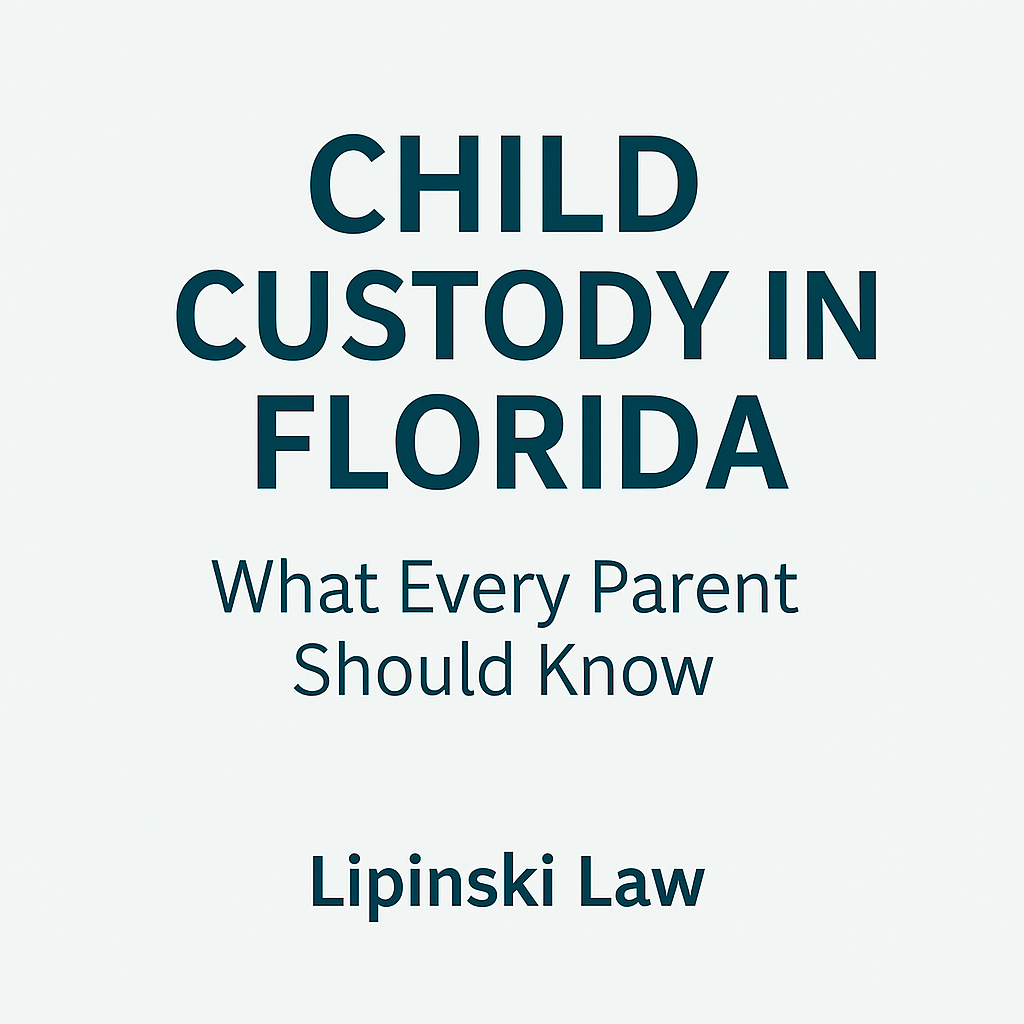
Navigating child custody in Florida can feel overwhelming—especially when your child’s future is on the line. Whether you’re going through a divorce, a paternity case, or modifying an existing order, understanding the custody process is crucial. As a family law attorney based in Clearwater, I’ve helped many parents create parenting plans that work. Here’s what you need to know.
✅ Understanding the Basics of Child Custody in Florida
Florida law has moved away from the traditional terms “custody” and “visitation.” Instead, the law refers to:
- Parental Responsibility (decision-making authority)
- Time-Sharing (physical time spent with the child)
These terms better reflect the modern emphasis on co-parenting and shared involvement in a child’s life.
Florida custody law is governed by Chapter 61 of the Florida Statutes, which you can view here.
✅ Types of Parental Responsibility
There are two main forms of parental responsibility in Florida:
- Shared Parental Responsibility: Both parents make decisions jointly about education, health care, religion, etc.
- Sole Parental Responsibility: One parent has the legal authority to make major decisions alone, usually granted when co-parenting is not in the child’s best interest (e.g., abuse, substance issues).
In most cases, Florida courts favor shared parental responsibility, unless there’s evidence that it would harm the child.
✅ Time-Sharing and Parenting Plans
Every custody case requires a Parenting Plan, which outlines:
- The weekly time-sharing schedule
- How holidays, birthdays, and vacations are handled
- Methods of communication between parents and child
- Who handles school enrollment, health care, etc.
Common time-sharing schedules include:
- 50/50 alternating weeks or days
- One parent having every other weekend
- Custom plans based on work schedules or school needs
The court must approve your Parenting Plan to ensure it serves the best interests of the child.
You can view examples of approved Florida parenting plan templates here.
✅ What Florida Courts Consider When Deciding Time-Sharing
Florida uses the “best interest of the child” standard. The judge looks at many factors, including:
- Each parent’s ability to put the child’s needs first
- The child’s age and developmental needs
- Stability in the home, school, and community
- Mental and physical health of each parent
- Each parent’s involvement in school, activities, and daily care
- Willingness to encourage a close relationship with the other parent
No single factor determines the outcome—courts aim to promote healthy co-parenting and stability.
✅ Modifying a Custody or Time-Sharing Agreement
If your situation changes, you may be able to modify the Parenting Plan—but only if there’s a substantial, material, and unanticipated change in circumstances.
Examples include:
- A parent relocating
- A change in work schedule
- Safety concerns or behavioral issues
You’ll need to file a petition and show that the change is in the child’s best interest.
✅ When to Contact a Family Law Attorney
While Florida’s custody laws aim to be child-focused, the process can be legally complex and emotionally draining. An experienced attorney can help you:
- Negotiate or draft a fair Parenting Plan
- Advocate for your parental rights in court
- Modify existing arrangements
- Protect your child’s safety and well-being
If you’re filing in Pinellas County, you can find additional forms and info from the Clerk of Court here
📞 Need Help With Child Custody in Clearwater or Pinellas County?
At Lipinski Law Firm, we work with parents across Florida to create solutions that are both legally sound and family-centered. Whether you’re starting fresh or need to modify an existing plan, we’re here to help.
👉 Call us at (727) 643-8964
👉 Or visit joeltheattorneysblog.com (opens contact page) to schedule a consultation.

